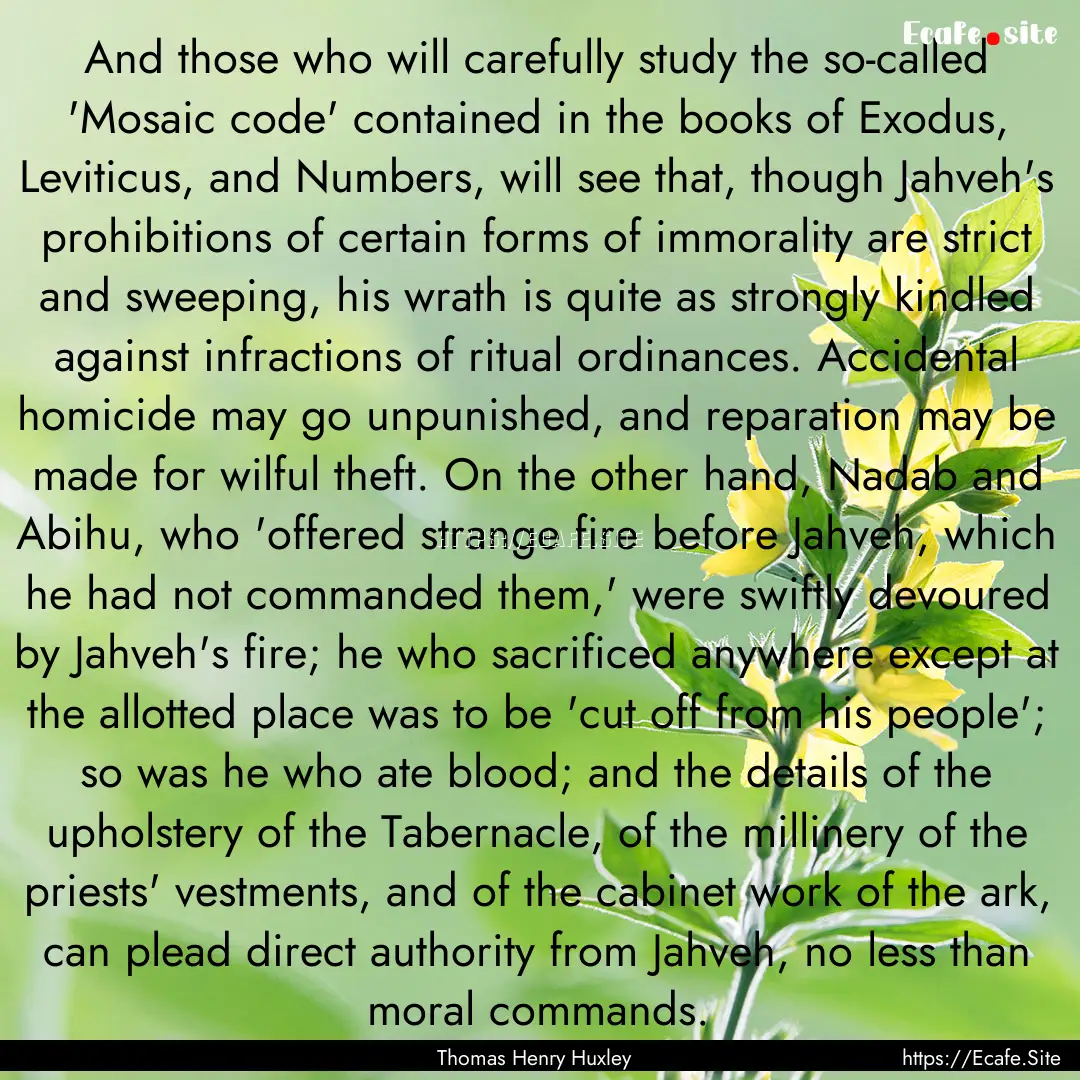
Report, if you have a problem with this page“ And those who will carefully study the so-called 'Mosaic code' contained in the books of Exodus, Leviticus, and Numbers, will see that, though Jahveh's prohibitions of certain forms of immorality are strict and sweeping, his wrath is quite as strongly kindled against infractions of ritual ordinances. Accidental homicide may go unpunished, and reparation may be made for wilful theft. On the other hand, Nadab and Abihu, who 'offered strange fire before Jahveh, which he had not commanded them,' were swiftly devoured by Jahveh's fire; he who sacrificed anywhere except at the allotted place was to be 'cut off from his people'; so was he who ate blood; and the details of the upholstery of the Tabernacle, of the millinery of the priests' vestments, and of the cabinet work of the ark, can plead direct authority from Jahveh, no less than moral commands. ”

Thomas Henry Huxley
From : The Evolution Of Theology: An Anthropological Study



